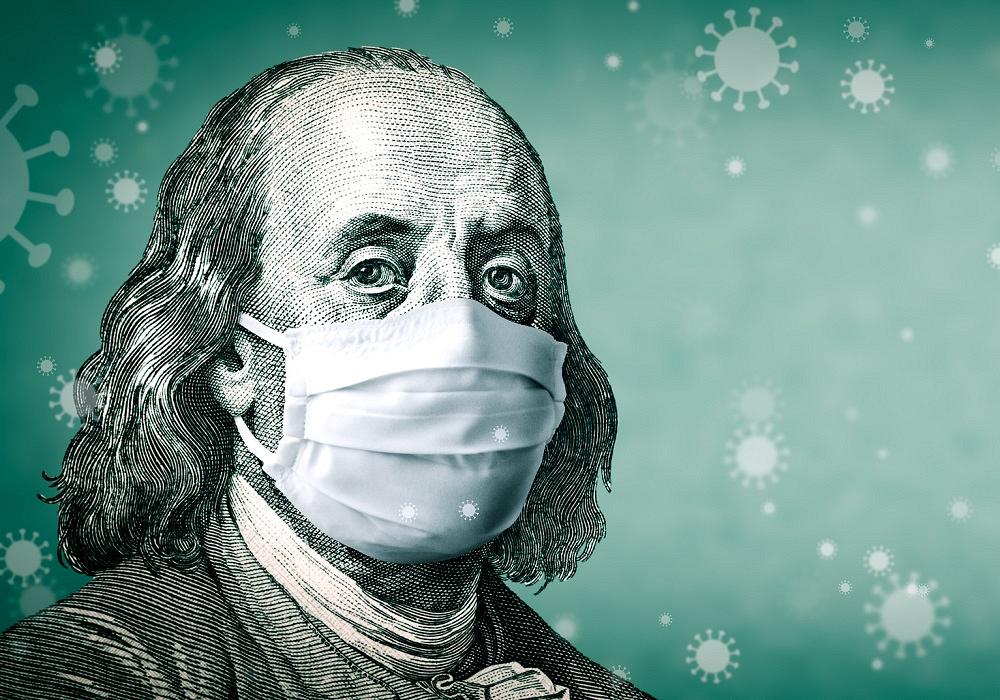Contributing Writer
- FMA
- The Fabricator
- FABTECH
- Canadian Metalworking
Categories
- Additive Manufacturing
- Aluminum Welding
- Arc Welding
- Assembly and Joining
- Automation and Robotics
- Bending and Forming
- Consumables
- Cutting and Weld Prep
- Electric Vehicles
- En Español
- Finishing
- Hydroforming
- Laser Cutting
- Laser Welding
- Machining
- Manufacturing Software
- Materials Handling
- Metals/Materials
- Oxyfuel Cutting
- Plasma Cutting
- Power Tools
- Punching and Other Holemaking
- Roll Forming
- Safety
- Sawing
- Shearing
- Shop Management
- Testing and Measuring
- Tube and Pipe Fabrication
- Tube and Pipe Production
- Waterjet Cutting
Industry Directory
Webcasts
Podcasts
FAB 40
Advertise
Subscribe
Account Login
Search
What the COVID-19 stimulus packages mean for manufacturers
Coronavirus Aid, Relief, and Economic Security Act efforts could include infrastructure funding
- By Stephen Barlas
- April 9, 2020

Manufacturers welcome the Coronavirus Aid, Relief, and Economic Security Act as they struggle during this economic slowdown. Getty Images
The manufacturing community did not get everything it wanted in the Coronavirus Aid, Relief, and Economic Security (CARES) Act and is watching expectantly as Congress considers a follow-on stimulus bill. That next package may headline major infrastructure spending and additional tax concessions, but its passage, or even its development, by Congress is anything but certain.
The National Association of Manufacturers (NAM) had called for a $1.4 trillion COVID-19 Resiliency Fund. The CARES bill did not include such a fund but did provide $350 billion in the form of a Paycheck Protection Program, which is meant to help small businesses, and $454 billion in emergency lending to businesses, states, and cities through the U.S. Treasury’s Exchange Stabilization Fund. But that total is well short of the $1.4 trillion the NAM sought.
In accentuating the positive, NAM CEO Jay Timmons said, “The bill also takes key steps from the NAM plan by increasing the maximum amount of tax deductions for interest on business loans and by creating an incentive, through loan forgiveness, for small manufacturers to retain their employees during this crisis.”
In addition to the tax benefit on business loans, the CARES Act allows companies to take net operating losses (NOLs) earned in 2018, 2019, or 2020 and carry back those losses five years. The NOL limit of 80% of taxable income is suspended, so firms may use NOLs they have to fully offset their taxable income. The net interest deduction limitation, which currently limits businesses’ ability to deduct interest paid on their tax returns to 30% of earnings before interest, tax, depreciation, and amortization (EBITDA), has been expanded to 50% of EBITDA for 2019 and 2020.
However, the NAM wanted any bill to adopt a federal designation that deemed the manufacturing supply chain “essential.” That designation would be important with regard to state and federal laws allowing essential companies to remain open during the coronavirus emergency. The federal Department of Homeland Security (DHS) issued some guidance—which has no legal standing—on March 19, and it did include some manufacturers as part of its list of “essential critical infrastructure workers.”
The Precision Metalforming Association (PMA) said on March 20 that the guidance covers approximately 2,500 companies in its association and companies belonging to the National Tooling and Machining Association. The DHS guidance explicitly covers manufacturers making medical devices, food equipment, and packaging equipment, for example, but it makes no mention of metal fabricators that supply parts to industries such as automotive, appliances, railroads, energy, and many others.
The DHS later clarified in update guidance on March 29 that workers who support crucial supply chains and enable functions for critical infrastructure should be included in the grouping of essential personnel. “The industries they support represent, but are not limited to, medical and health care, telecommunications, information technology systems, defense, food and agriculture, transportation and logistics, energy, water and wastewater, law enforcement, and public works,” the guidance stated. But the 12 pages of detailed listings of “covered employees” in those industries included very few references to “manufacturers.”
Christie Carmigiano, PMA spokeswoman, argues the DHS guidance is by end product, not supplier.
“PMA believes that focusing on the end product, while not a clear directive for the industry, does provide for maximum flexibility as governments cannot be expected to become experts in the manufacturing process as they will exclude critical industries, such as stampers who supply those critical products,” she said.
Many metalworking companies view the $350 billion Paycheck Protection Program for small businesses with fewer than 500 employees as the most important provision in the bill. The small-business loans, with a maturity of two years and a 1% interest rate, are available through any bank approved as a Small Business Administration lender. The loans can be as much as $10 million to cover payroll costs, mortgage, and rent payments and health care benefits for employees, including paid sick leave. In some cases, they also can cover interest on other debts.
The new loans apply to costs incurred retroactive to Feb. 15 through June 30. The CARES Act includes loan forgiveness for companies able to keep employees on payroll or continue paying bills throughout the coronavirus crisis. The amount of loan forgiveness will include payroll costs for individuals below $100,000 in annual income and mortgage and rent obligations, including interest and utility payments.
Both Democrats and Republicans in Congress have been talking about another stimulus package focusing on infrastructure, which manufacturing and construction companies have been clamoring for since President Donald Trump’s election in 2016. For example, the chair of the House Committee on Transportation and Infrastructure, Peter DeFazio, D-Ore., said the next step should be “a true stimulus that creates jobs and rebuilds our decaying infrastructure.”
subscribe now

The Fabricator is North America's leading magazine for the metal forming and fabricating industry. The magazine delivers the news, technical articles, and case histories that enable fabricators to do their jobs more efficiently. The Fabricator has served the industry since 1970.
start your free subscriptionAbout the Author

Stephen Barlas
- Stay connected from anywhere

Easily access valuable industry resources now with full access to the digital edition of The Fabricator.

Easily access valuable industry resources now with full access to the digital edition of The Welder.

Easily access valuable industry resources now with full access to the digital edition of The Tube and Pipe Journal.
- Podcasting
- Podcast:
- The Fabricator Podcast
- Published:
- 04/16/2024
- Running Time:
- 63:29
In this episode of The Fabricator Podcast, Caleb Chamberlain, co-founder and CEO of OSH Cut, discusses his company’s...
- Industry Events
16th Annual Safety Conference
- April 30 - May 1, 2024
- Elgin,
Pipe and Tube Conference
- May 21 - 22, 2024
- Omaha, NE
World-Class Roll Forming Workshop
- June 5 - 6, 2024
- Louisville, KY
Advanced Laser Application Workshop
- June 25 - 27, 2024
- Novi, MI































